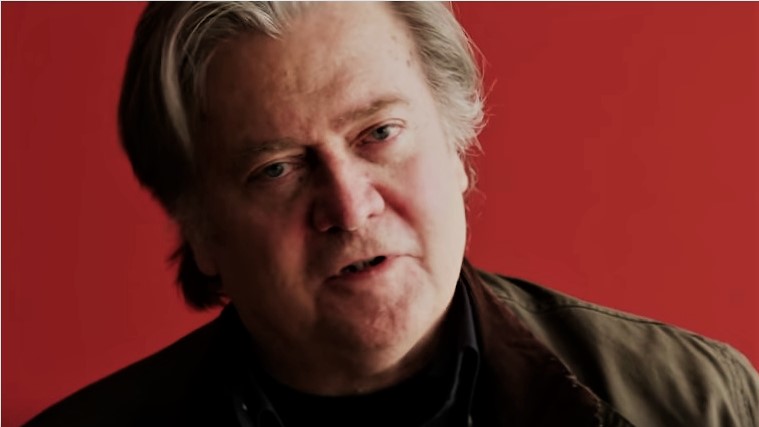 On Tuesday's Fresh Air on NPR, host Terry Gross and her guest, liberal author Joshua Green, discussed how Trump and Trump-affiliated Republicans somehow created an "epidemic" of sexual assault. Green wrote a book on Trump adviser Steve Bannon unsubtly titled Devil's Bargain. This is mildly amusing, since NPR types don't actually believe so much in the Devil.
On Tuesday's Fresh Air on NPR, host Terry Gross and her guest, liberal author Joshua Green, discussed how Trump and Trump-affiliated Republicans somehow created an "epidemic" of sexual assault. Green wrote a book on Trump adviser Steve Bannon unsubtly titled Devil's Bargain. This is mildly amusing, since NPR types don't actually believe so much in the Devil.
For the paperback edition of his book, Green chronicled Bannon obsessing over Oprah Winfrey's speech at the Golden Globes as posing the "existential threat" of a "matriarchy." Then Gross started preaching:
TERRY GROSS: I'm going to do a partial list - I think it's only partial - of people in the Trump administration who have been accused of sexual harassment, sexual molestation or sexual assault. We'll start with Steve Bannon himself, who was charged with three misdemeanor counts of domestic violence in 1996 by his now ex-wife -- violence, battery and dissuading a witness. Recently staff secretary Rob Porter; Corey Lewandowski, the former campaign manager; Andrew Puzder, who was the first choice for secretary of labor but the charges -- the allegations against him nixed that. Speechwriter David Sorensen; Okay, Bannon's candidate to replace Jeff Sessions in the Senate, Roy Moore -- all those women coming forward and saying that they were molested by him as teenagers.
So I'm not even sure what my question is here, but this seems to be -- like, Trump seems to have surrounded himself and Bannon seems to have surrounded himself with people who assault or harass women.
JOSHUA GREEN: Well, and let's not leave Trump himself off that list, right?
TERRY GROSS: Oh, oh, I'm sorry. (Laughter) I did not mean to leave him off.
JOSHUA GREEN: Credibly accused of sexual assault by 13 women, you know, not to mention the hush money to the porn star and so on. Look, I think it is an epidemic among, you know, White House and White House-affiliated Republicans. Clearly, this is not something that matters to people in the White House or didn't matter anyway until it became public in the last week or so.
At least Gross had the sense to recall that NPR is having its own #MeToo problem: "First of all, I want to say that I recognize that the White House isn't the only place in which there are sexual harassers, molesters or assaulters. You know, there's been sexual harassment allegations within public radio. So I just, you know, I don't want to sound clueless about that."
But Gross made no attempt to make a similar list of suspects at NPR. Start with senior news VP Michael Oreskes; news executive David Sweeney; longtime Prairie Home Companion star Garrison Keillor; The Takeaway host John Hockenberry, who harassed women from a wheelchair; and the latest casualty, Tom Ashbrook, dismissed from his national show On Point for an abusive work environment with unwanted physical contact, although it “was not sexual in nature, and did not constitute sexual harassment,” according to his employers at Boston University.
So maybe Gross's moral outrage over an "epidemic" rings a little tinny? Gross can spend a half-hour lauding Anita Hill and her unproven charges of sexual harassment against Clarence Thomas, but she hasn't "wasted" any Fresh Air time discussing NPR's abuse problems.
And then Gross turned right back on Bannon:
GROSS: But getting back to your point that Bannon is the only person who seems to perceive that this could be an existential threat, that all these allegations could be an existential threat for the Republican Party, I find it interesting that Bannon doesn't express concern for the women either. He's concerned about the votes.
GREEN: Yeah, I think that's exactly right. And, you know, he is chiefly interested in propping up Donald Trump and in finding a way back to power and influence within Trump's orbit.




